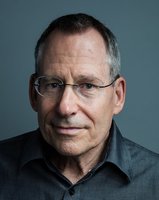
Professor John Preskill awarded 8th Bell Prize
The Eight Biennial John Stewart Bell Prize for Research on Fundamental Issues in Quantum Mechanics and Their Applications is awarded to John Preskill (Richard P. Feynman Professor of Theoretical Physics, California Institute of Technology) for developments at the interface of efficient learning and processing of quantum information in quantum computation, and following upon long standing intellectual leadership in near-term quantum computing.
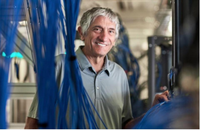
John Martinis awarded the seventh Bell Prize
The seventh biennial John Stewart Bell Prize for Research on Fundamental Issues in Quantum Mechanics and Their Applications is awarded to John Martinis (professor of physics, UC Santa Barbara, USA) for his innovations in the design and control of superconducting devices, in particular his leadership in devising low-error multi-qubit superconducting chips, which has resulted in the first plausible claim of quantum supremacy, ushering in a new era of computing.
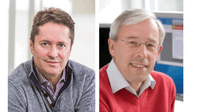
Ignacio Cirac and Peter Zoller awarded the sixth Bell Prize
The sixth biennial John Stewart Bell Prize for Research on Fundamental Issues in Quantum Mechanics and Their Applications is awarded to Ignacio Cirac (Max Planck Institute for Quantum Optics) and Peter Zoller (University of Innsbruck) for their recent groundbreaking proposals in quantum optics and atomic physics on how to engineer quantum systems to carry out novel information processing tasks.

Ronald Hanson, Sae-Woo Nam and Anton Zeilinger awarded the Fifth Bell Prize
The fifth biennial John Stewart Bell Prize for Research on Fundamental Issues in Quantum Mechanics and Their Applications is awarded to Ronald Hanson (TU Delft), Sae Woo Nam (NIST), and Anton Zeilinger (University of Vienna) for their groups’ experiments simultaneously closing the detection and locality loopholes in a violation of Bell’s Inequalities. This work removes all reasonable doubt about the nonlocal nature of quantum entanglement, and opens the door to new information technologies.
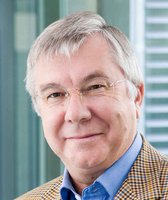
Rainer Blatt awarded the Fourth Bell Prize
The fourth biennial John Stewart Bell Prize for Research on Fundamental Issues in Quantum Mechanics and Their Applications is awarded to Rainer Blatt, Professor of Physics at the University of Innsbruck, Austria, for his pioneering research on quantum information processing with trapped ions, in particular, for the recent demonstrations of analog and digital quantum simulators and quantum logic gates on a topologically encoded qubit.
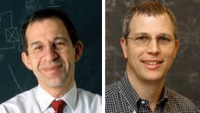
Michel Devoret and Robert Schoelkopf awarded the Third Bell Prize
The third biennial John Stewart Bell Prize for Research on Fundamental Issues in Quantum Mechanics and Their Applications is awarded to Michel Devoret and Robert Schoelkopf, Professors of Applied Physics at Yale University, USA, for fundamental and pioneering experimental advances in entangling superconducting qubits and microwave photons, and their application to quantum information processing.
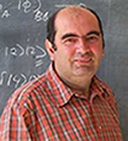
Prof. Sandu Popescu awarded the Second Bell Prize
The second biennial John Stewart Bell Prize for Research on Fundamental Issues in Quantum Mechanics and their Applications is awarded to Sandu Popescu, Professor of Physics at the University of Bristol, UK, for discoveries illuminating the nature of nonlocality and entanglement, the investigation of stronger-than-quantum non-signaling correlations, and the application of quantum theory to thermodynamics.
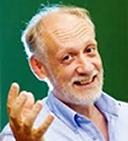
Prof. Nicolas Gisin awarded the First Bell Prize
In 2009, the first biennial John Stewart Bell Prize for Research on Fundamental Issues in Quantum Mechanics and their Applications was awarded to Prof. Nicolas Gisin for his theoretical and experimental work on foundations and applications of quantum physics, in particular: quantum non-locality, quantum cryptography and quantum teleportation.

